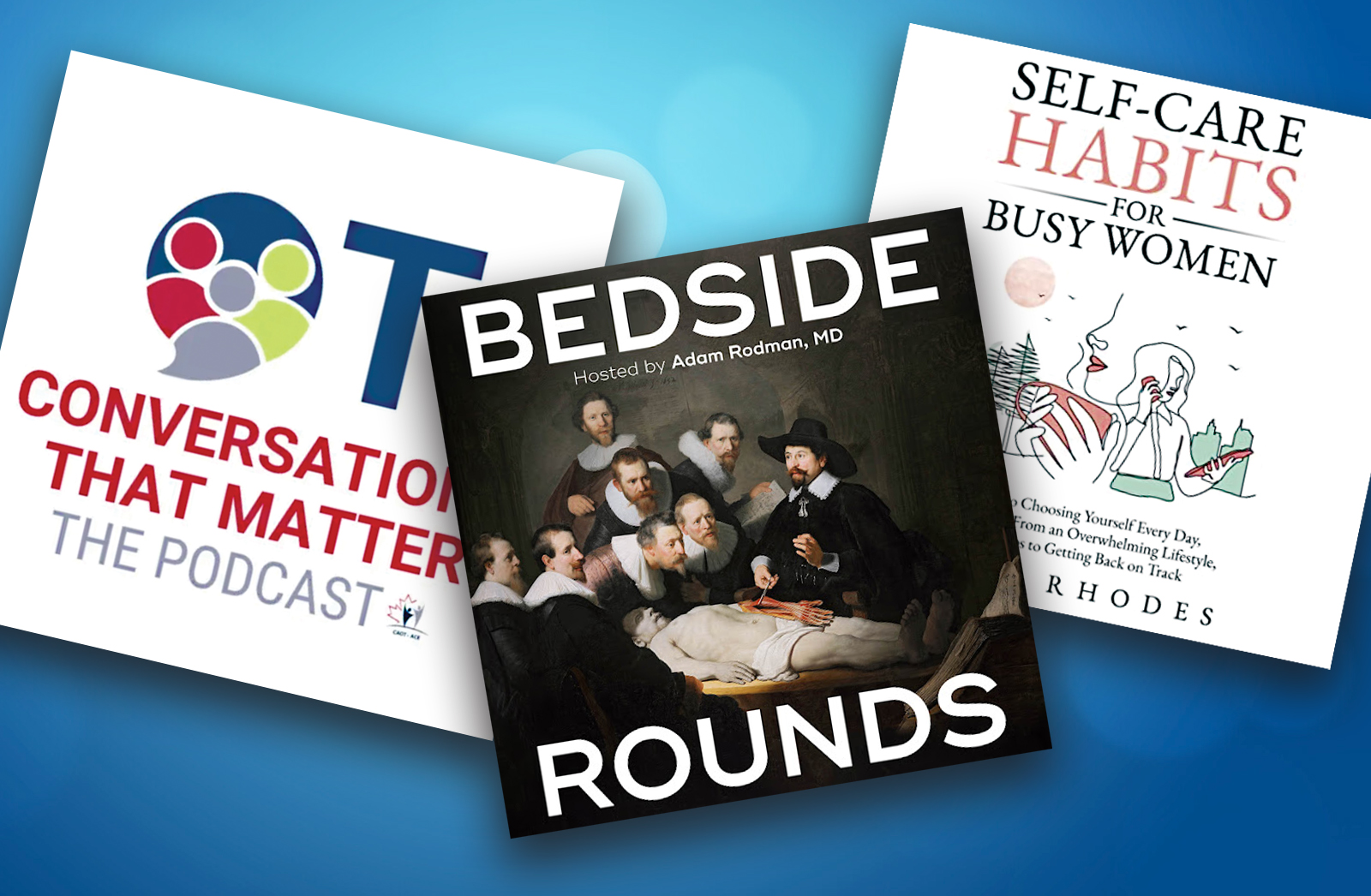Make these 8 changes!
Morning routines are all the buzz these days. Everyone has one, good or bad. Few people have considered a night routine. If you don’t have a night routine, you are missing out on the most rewarding and meaningful part of your day.
If you’re like most people, your nights are probably spent vegging out on social media, Netflix, drinking, and snacking.
Scientifically, these behaviors are not surprising. According to psychologist Roy Baumeister, we all have a limited amount of willpower we can expend each day—mental energy is depleted by every decision we have to make, whether small or large. Baumeister calls this decision fatigue.
So, by the end of our day, we’ve made countless decisions and exhausted our willpower. Is it any wonder we waste away our most precious time, struggle to be present with our loved ones, and ignore the resolves we made that morning?
This is a huge problem.
Fortunately, routines are the antidote to decision fatigue. When something is routine, it’s requires minimal mental energy. The decision has already been made. Willpower is no longer required. Life is on autopilot. You stop self-sabotaging. Unfortunately, evening routines are much harder to master than morning routines.
In his book, The Compound Effect, Darren Hardy argues that a person’s morning and evening routines are the “bookends” of a prosperous life. Without these bookends, your life will always be a disorganized mess. With them, you’ll create tremendous momentum towards the life of your dreams.
If Your Nights Are Bad, The Rest Of Your Life Will Suffer
As I recently wrote, morning routings are critically important. But your morning routine will always suffer if you can’t master your evenings. The hours before bed dramatically affect how well we sleep. And how we sleep makes or breaks our day.
Even more, how we spend the hours before we go to bed reflects the value we place on the most important things in life. Yes, our work matters. But work is a means to a much higher end—the people in our lives.
Our loved ones deserve more from us. Not only do they deserve better, but we deserve better. If we can take control of our nights, we will quickly change the entire course of our lives. We will also experience the rejuvenation and joy that evenings are meant to provide.
Are you ready to change the way you spend your evenings? Are you ready to change your entire life?
Let’s begin:
1. Unplug 1-2 Hours Before Sleep
“In this media-drenched, multitasking, always-on age, many of us have forgotten how to unplug and immerse ourselves completely in the moment. We have forgotten how to slow down. Not surprisingly, this fast-forward culture is taking a toll on everything from our diet and health to our work and the environment.”—Carl Honore
The line between work and home is becoming increasingly hazy. Between phone calls, email, texting, and social media, it can be extremely difficult to unplug. More often than not, we bring our work home with us. Consequently, we rarely give our full attention to those we love.
Not only do we fail to live in the present, but study after study have found that electronic devices harm our sleep cycles. Dr. Verma advises turning off electronics at least 1-2 hours before bedtime (even e-ink devices like Kindle or Nook). Two hours is best, even though impractical for many people.
Mariana Figueiro and her team of the Lighting Research Center at Rensselaer Polytechnic Institute have shown that two hours of iPad use at maximum brightness can suppress people’s regular nighttime release of melatonin—a hormone in the circadian system which is the body’s clock.
Melatonin signals to your body that it is night, helping you become sleepy. When that signal is delayed you could delay sleep. Doing this frequently over a long period of time can disrupt the circadian system often inflicting serious health consequences.
2. Eat The Right Foods, Sparingly
You’ve been told eating before bed will make you fat. That’s not exactly true. On the contrary, a light snack before bed can help you sleep more soundly without gaining weight—if you eat the right foods. Of course, if you regularly eat the wrong foods (like chips, cookies, or anything sugary) before bed, you will likely gain fat weight.
Stephanie Maxson, senior clinical dietician at the University of Texas’s MD Anderson Cancer Center, explains that if you eat dinner a few hours before bedtime and/or are physically active, snacking before bed will help stabilize your blood sugar levels during the long, meal-less night. Blood sugar and its related hormones can either boost or deflate your appetite and energy levels. Moreover, they can confuse your body’s efforts to store or burn fat. If you have low blood sugar when you wake up in the morning, you will likely feel lethargic. Furthermore, low blood sugar can disrupt your sleep in the middle of the night causing you to be in and out of sleep.
Cassie Bjork, a registered dietician and founder of HealthySimpleLife.com says it’s a myth that the body doesn’t need fuel before sleep. The right bedtime snack provides fuel your body needs to burn calories while you sleep in addition to releasing hunger hormones that cause your body to store fat.
Recommended night time snacks include:
• Complex carbohydrates like whole wheat bread
• Non-starchy vegetables
• Popcorn
• Fruit
Maxson explains that these foods break down slowly, which stops blood sugar spikes or crashes that disturb sleep and appetite.
For athletes, lean protein, such as turkey and chicken, facilitate muscle repair during the night while also providing tryptophan, an essential amino acid which promotes healthy sleep.
Additionally, healthy fats before bed can also slow the absorption of carbohydrates into your system. If you commonly wake up tired or hungry, eat some avocado, a spoon full of peanut butter, or some melted butter on your popcorn.
3. Account, Report, And Prepare For Tomorrow
At the end of each day, it is good to spend 5-10 minutes reviewing your day, briefly recording what happened, and making proper plans for tomorrow.
Reviewing your day keeps you accountable to yourself. Did you do all you planned to do? If you can’t be accountable to yourself, who can you be accountable to?
Greg McKeown, author of Essentialism, writes in his journal daily to record his experiences, insights, and memories. He recommends writing far less than you want to—only a few sentences or paragraphs at most. Like most people who regularly journal, you’ll be tempted to write down every detail. This could take several minutes or even over an hour. If you do this, you’ll burn out quickly and stop after a day or two. It’s much better to jot down the key things every day. Before you know it, you’ll have several journals filled recording each day of your life.
Lastly, you quickly assess your planner and to-do list for tomorrow. This includes visualizing how your day will go. Olympic swimmer, Michael Phelps claims that visualization is the key to his athletic success. He often speaks of his intense mental visualizations of a perfect swim the night before a race as being intimately tied to the wins that follow.
4. Have Moments With The People You Love
“The bitterest tears shed over graves are for words left unsaid and deeds left undone.”—Harriet Beecher Stowe
Happiness comes from embracing the now. Not letting those moments pass you by. Nothing in life is permanent. Kids grow up. Friends move away. Our loved ones pass on from this life. Let’s live in the present and appreciate the most important things in our lives before it’s too late.
For most of us, it is our evenings that we get to spend with the people we love. If we don’t make that a priority, and guard it from other things (including our own exhaustion and distraction), we won’t do it.
It has been said that you can know a person’s priorities by looking at their planner. We plan our meetings, our lunches, and our workouts. Yet, most of us have never taken the time to put our loved ones into our planners.
5. Enjoy Your Hobbies
Most of our day is spent working. It can be difficult to spend time doing things that provide joy and variety to our lives. It’s easy to brush these things off in our increasingly busy lives. Often, it is touted and praised to not have hobbies and to work ceaselessly. Yet, balance is key to happiness and success. Being serious all the time can increase stress and ultimately lead to depression.
Making time for playful relaxation can facilitate inspiration, gratitude, and even flow. Consequently, spending 30 or so minutes at night on a hobby can rejuvenate you and add some fun into your life.
6. Tidy Up Your House
A common practice among successful business people is tidying up their workspace before they leave the office. That’s because nobody enjoys the feeling of walking into a mess.
Similarly, taking a few minutes to tidy up your house before going to bed allows you to sleep in a clean space and wake up to a clean environment. This will reduce stress and decision fatigue. It also facilities positive energy in the morning, which is essential for maintaining happiness and balance throughout the day.
7. Send Love To Yourself And Others
It is a common meditative practice to meditate while lying in bed, just before going to sleep. You take some deep breathes and reflect on the love you have for yourself and other people. Not only do you reflect, but you purposefully send positive energy or vibes to other people. This deepens your connect with them. A similar practice is nightly prayer, where you give thanks for your blessings and pray for the wellbeing of other people.
These practice enhances your gratitude and perspective. They allow you to see life from a higher plane while connecting you with yourself and those you love.
8. Go To Bed On Routine
A friend recently told me he wakes up early every day, regardless of when he goes to bed, “because waking up early helps him be more productive.” But he has way too many things going on to get to bed when he should.
“Like what?” I asked.
“Well, we just moved, we have kids, I’ve got work, and we have a dog…” he said before trailing off. People have endless excuses for not going to bed at a decent hour. These excuses reflect a mismanagement of life. Yes, things can be difficult. But the conscious person shapes their life to facilitate their success and wellbeing.
Getting in sync with your body’s natural sleep-wake cycle—your circadian rhythm—is crucial for achieving healthy sleep.
It is extremely important to go to bed at the same time every night. By keeping a regular sleep schedule, you will feel more refreshed and energized than if you sleep the same number of hours at different times. Altering sleep schedules by an hour or two on the weekends can throw off your circadian rhythm. Consistency is key with sleep. As Dr. Verma has stated, “Many of my patients have such a different weekday/weekend wake schedule that they are experiencing the same sleepiness that people who are jet-lagged. Even two hours difference hurts, especially if they are already sleep deprived.”
There is no set time for when you should go to bed. Everyone is different. However, in order to maximize your morning routine, it is best to sleep before 11 P.M. The earlier the better.
Conclusion
Your evening routine reflects your highest priorities in life. Actions speak louder than words. Either you care about yourself and your loved ones, or you don’t. By carving out time every night to rejuvenate yourself, and spend moments with your loved ones, you’ll find greater balance and happiness in life.
Your morning and evening routines should be firm and consistent. However, your routines will likely change as you go through different seasons of life. Going to college, working full-time, and having kids all require adjustments to your routine. Having a routine becomes increasingly important as your life becomes more hectic and busy.
Benjamin Hardy is the foster parent of three children and the author of Slipstream Time Hacking. He’s pursuing his Ph.D. in organizational psychology. To learn more about Mr. Hardy, visit www.benjaminhardy.com or connect with him on Twitter.














